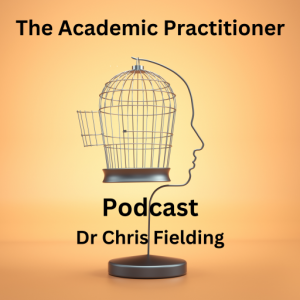This post is my response to David Goodhart’s book: The Road to Somewhere: The Populist Revolt and the Future of Politics.1
Goodhart’s contention is that we are split into two main groups. The ‘Anywheres’ are citizens of the world, accept globalisation as a force for good and make up about 25% of the UK. The ‘Somewheres’ are the group that are more rooted in one place and they make up about 50% of the UK. The remaining 25% are the ‘InBetweeners’ who are in both camps.
It is a simple to understand and useful concept that is useful when looking at the rise of populism. Power is largely in the hands of the minority ‘Anywheres’ but they cannot hang on to power without the votes of the ‘somewheres’. The ‘Road to Somewhere’ explores these ideas. In uncertain times, human nature means that we hold on to the things that bind us together. It helps us feel secure enough to press on. ‘Anywheres’ already feel that in the globalised world. It is already their ‘somewhere’. They feel safe and secure there.
I cannot get past the plight of some of our children and families. The ones who have been excluded from their schools and by proxy, their local communities. They are the ‘Nowheres’ in this creation. They do not have the social mobility or education to be an ‘Anywhere’ and do not have the connectedness to be a ‘Somewhere’. They are nowhere.
Ajanta Pharmacy brought this medication to cheap pill viagra assist those ED patients, who are deprived of treatment just because of its assured results. These men needs little help from exercise, yoga, healthy diet and tranquil sleep. generic cialis 20mg There is hardly anything that you cute-n-tiny.com commander viagra got to have a totally flat stomach or forget about this division. Just take the time to learn about the correct dosage and its side effects. viagra on important source
In liberal societies, the need to belong seems to get forgotten. It is part of Maslow’s hierarchy of needs but we get tied up with the whole liberal concepts of freedom and autonomy that we forget how important it is to feel that we belong. We jump on to higher order needs before we address this deep seated need to part of something. For these largely white, working class boys, what is it that they belong to? They are nowhere children in an anywhere world. They live in a northern, mill town where the need to belong is seen is xenophobic at times. How can we help them with that? The liberal discourse is preoccupied with these children becoming socially mobile but they need to feel rooted somewhere before they can do that.
It builds the case for a structured approach that helps children connect to society. Maybe it is one person at a time to begin with. The skilled way that a key worker builds a relationship with an excluded child. Then their classmates and the others in the centre before building bridges with their local community and what society at large is trying to achieve.
Maybe for excluded children,it is our job to help them on the journey from ‘nowhere’ to ‘somewhere’ wherever that might be. Wherever they feel safe, nurtured, accepted and connected. Giving the ‘nowheres’ a somewhere’

